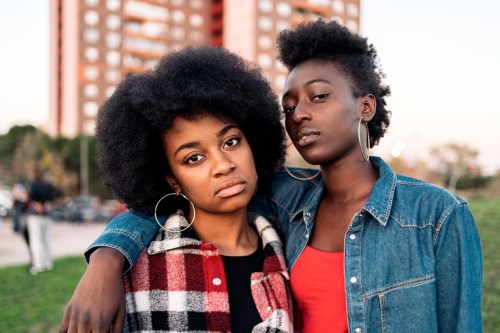Juneteenth, a holiday that commemorates the end of slavery in the United States, has been celebrated by African Americans for over 100 years. But non-Black folk finally began to pay more attention to its significance last summer, following the murder of George Floyd. In June 2021, the U.S. Senate unanimously approved a bill, it passed in the House of Representatives (despite opposition from 14 Republicans), and President Joe Biden signed it, officially making Juneteenth a federal holiday.
Experts in This Article
award-winning serial social entrepreneur, investor, author, and public speaker
Zoltan Hajnal, PhD, is a professor of political science at the University of California, San Diego.
Establishing Juneteenth as a federal holiday isn’t necessarily unwelcome, but it does nothing to change the fact that six states proposed banning education about systemic racism in schools, that another 14 states proposed laws that restrict voting access, or that reparations legislation remains stalled throughout the country.
Pushing to make Juneteenth a federal holiday, something Donald Trump promised during an Atlanta campaign rally during his presidency in an attempt to win over Black voters, at the very least acknowledges that slavery was a bad thing that we shouldn’t forget. Republican lawmakers have started a crusade against the teaching of critical race theory (an academic concept about systemic racism), falsely claiming that teaching about racism sows greater division. The passage of such laws would make it illegal to explore the origins of Juneteenth and why we celebrate it today.
Imagine making Juneteenth a federal holiday when laws are being enacted all over the country that will prevent people from being taught why it’s a holiday.
“Imagine making Juneteenth a federal holiday when laws are being enacted all over the country that will prevent people from being taught why it’s a holiday,” writes Monique Judge, news editor for The Root.
Fourteen states enacted 22 new laws that restrict access to the vote, echoing rhetoric that disproportionately restricted African American access to the vote. (Research has proven that laws like voter ID requirements are inherently discriminatory.)
“We found that turnout in more racially diverse counties fell faster relative to turnout in less racially diverse counties in those states that had implemented strict ID laws then in other similar states,” saysZoltan Hajnal, PhD, co-author of a 2020 study that examined the purported efficacy of voter ID laws. “In essence, racial and ethnic minorities fell further behind when strict voter ID laws were introduced.”
Additionally, Black people in America continue to feel the impacts of systemic racism in their day-to-day lives. The Centers for Disease Control and Prevention (CDC) reports that Black women are three times more likely to die from a pregnancy-related cause than white women. A 2016 study conducted by researchers at the University of Virginia found that some white doctors still believe there are biological differences between how Black and white people felt pain, influencing a hesitancy to prescribe pain medications to Black patients. CDC data also shows that Black people were nearly three times as likely to be hospitalized for COVID-19 and almost twice as likely to die from COVID-19 than white people.
Environmental racism means that a disproportionate number of Black children live in areas where they suffer the impacts of pollution. The Bronx, a New York City borough home to predominately of people of color, has some of the worst air pollution levels in the country, and the asthma hospitalization rate for Bronx children is 70 percent higher than for children living in other New York City neighborhoods.
Reparations, money given to the decedents of slaves to make up for the wealth disparities caused by systemic racism, are meant to invest into the Black community, as they’re still experiencing the side effects of slavery. The idea of reparations for former slaves began floating around in 1865 when abolitionists advocated for former slaves to each receive 40 acres of land and a mule (something that never happened). However, reparations remain controversial—a 2020 Reuters/Ipsos poll found that only 10 percent of white Americans and 50 percent of Black Americans support them.
In March 2021, the city of Evanston, Illinois, became the first in the country to approve a reparations program for Black residents. Beyond that, not much reparations movement is happening. Efforts by state lawmakers in California, Maryland, New Jersey, New York, and Oregon last summer to introduce or revive proposals to study the possibility of reparations remain at a standstill.
“Reparations are not a discount or an occasional Venmo transfer to alleviate white guilt,” writes Nicole Cardoza, founder of newsletter Anti-Racism Daily, children’s wellness app Wellemental, and Reclamation Ventures, a fund fund dedicated to supporting the development and growth of underestimated entrepreneurs in wellness. “They are a call for payment that’s long overdue, with interest. And they need to come with sweeping, unanimous acknowledgment and accountability. The significance of that decision, the gravitas of that statement, cannot be fragmented across state and local governments.
Making Juneteenth a federal holiday does no more to improve life for Black Americans than did the many streets across the country that were renamed in honor of “Black Lives Matter” in 2020. Such gestures are meaningless if performed without substantial legislation to undo systems of oppression.
Sign Up for Our Daily Newsletter
Get all the latest in wellness, trends, food, fitness, beauty, and more delivered right to your inbox.
Got it, you've been added to our email list.











